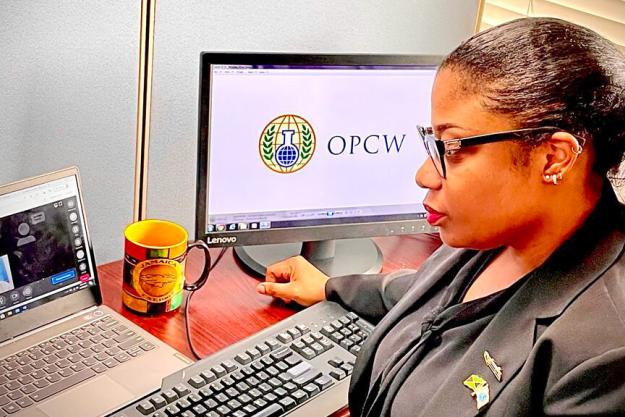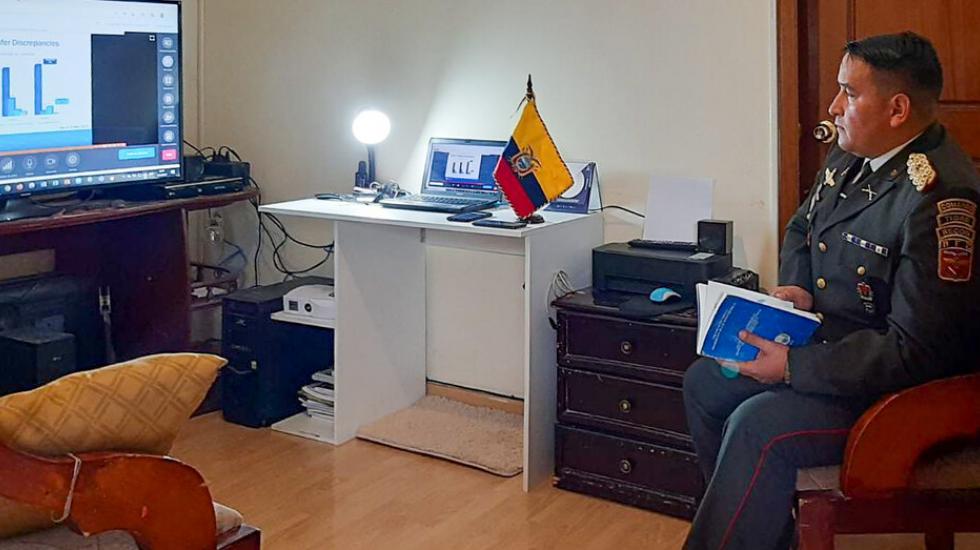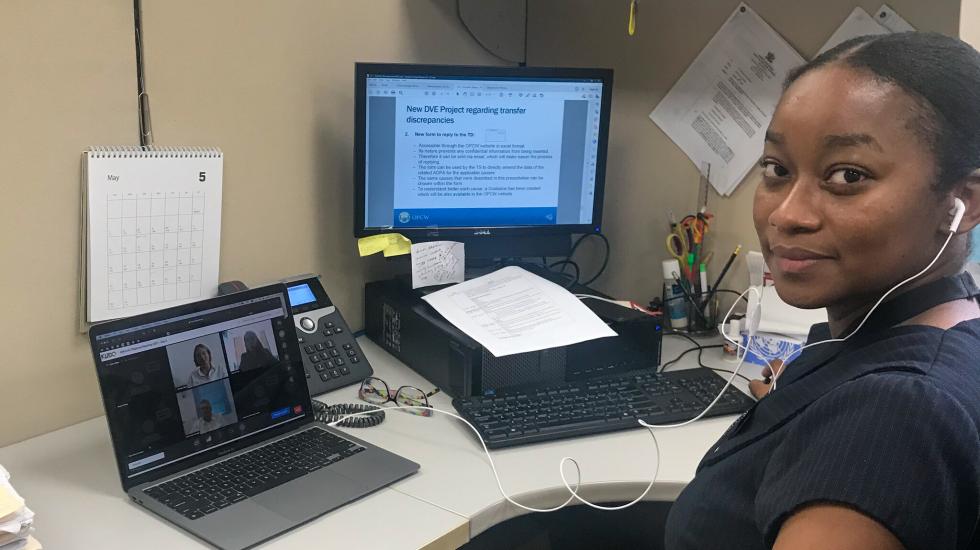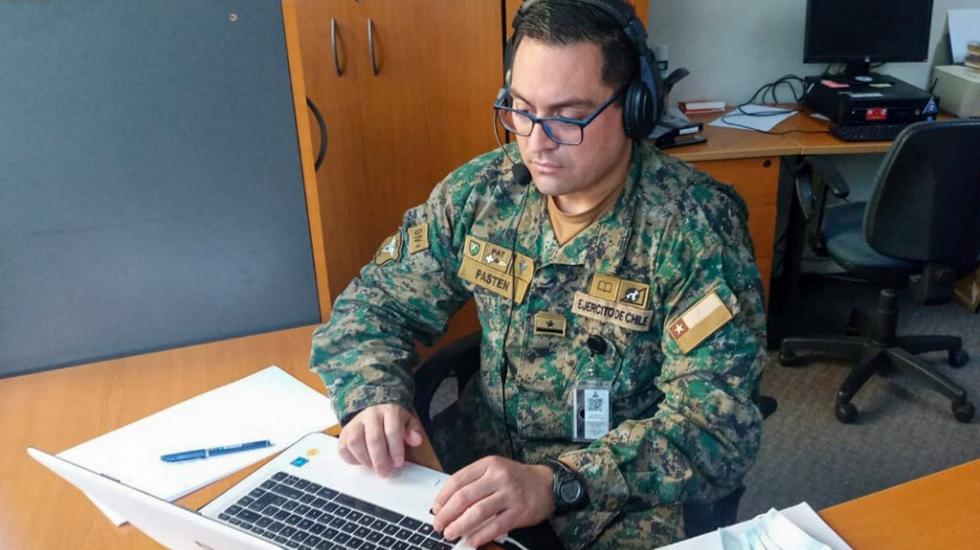
THE HAGUE, Netherlands–11 June 2021–Representatives of 22 Latin American and Caribbean (GRULAC) Member States of the Organisation for the Prohibition of Chemical Weapons (OPCW) explored ways of advancing the implementation of the Chemical Weapons Convention (CWC) during their 22nd regional meeting held online from 8 to 10 June.
The OPCW’s Director of the International Cooperation and Assistance Division, Ms Kayoko Gotoh, stated in her opening remarks: “The level of participation in this meeting underscores the commitment of Latin American and Caribbean States Parties to the Chemical Weapons Convention and reflects our shared belief that regional cooperation is essential for the effective implementation of the Convention.”
The Technical Secretary of the National Authority of Bolivia, Colonel Marco Antonio Romay Taborga, expressed his appreciation for the opportunity to meet despite the challenges posed by the pandemic: “Although we are unable to hold face to face meetings, technology has allowed National Authority representatives in the region to hold substantive exchanges on how to enhance CWC implementation.”
This was the first of a series of online meetings conducted via a remote simultaneous interpretation platform. This initiative by the Technical Secretariat seeks to further improve accessibility and engagement for non-English speaking participants.
Attendees discussed a range of issues related to national implementation, including enhancing national legal frameworks on the CWC, challenges in adopting legislation, resolving transfer discrepancies, submitting declarations online, using online tools such as the Electronic Declaration Information System (EDIS), building laboratory capacities, and promoting chemical security. In addition, the National Authority representatives examined possibilities for strengthening education and outreach, particularly with chemical industry and academia, while OPCW’s Technical Secretariat provided an update on its assistance and cooperation activities designed for GRULAC Member States.
The participants included 53 representatives of the following OPCW Member States from GRULAC: Argentina, the Bahamas, Barbados, Bolivia, Brazil, Chile, Colombia, Costa Rica, Cuba, Ecuador, El Salvador, Jamaica, Mexico, Nicaragua, Panama, Paraguay, Peru, Saint Kitts and Nevis, Saint Vincent and the Grenadines, Trinidad and Tobago, Uruguay, and Venezuela.



Background
Regional meetings of National Authorities of OPCW Member States provide a forum for addressing various national implementation issues, capacity building programmes, and other issues related to the Chemical Weapons Convention. National Authorities also share good practice and discuss challenges encountered in their liaison role with the OPCW for national implementation of the Convention.
As the implementing body for the Chemical Weapons Convention, the OPCW, with its 193 Member States, oversees the global endeavour to permanently eliminate chemical weapons. Since the Convention’s entry into force in 1997, it is the most successful disarmament treaty eliminating an entire class of weapons of mass destruction.
Over 98% of all declared chemical weapon stockpiles have been destroyed under OPCW verification. For its extensive efforts in eliminating chemical weapons, the OPCW received the 2013 Nobel Peace Prize.
